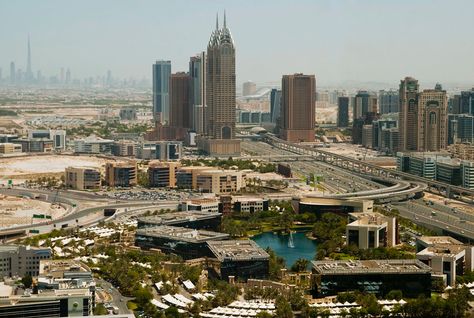
Prime office space in Dubai remains the most expensive in the Middle East but is more than a third the cost demanded in Hong Kong, a new report has revealed.
Dubai is ranked 23rd globally with office occupancy costs of AED280 ($92.57) per sq ft per year, according to CBRE Global Research and Consulting’s Global Prime Office Occupancy Costs survey.
It said the Dubai office occupancy ranking has dropped by four places when compared to last year, translating to more affordable office rental space.
Nick Maclean, managing director, CBRE Middle East, said: “We continue to see strong demand from international companies primarily seeking to improve the quality of accommodation and/or its efficiency. The latter point is particularly important for organisations whose staff are spread across several buildings.
“Dubai’s position as first choice for regional new entrants is very important. In addition to direct real estate considerations, the relative depth of the labour pool and the quality of the aviation transport sector are cited as important in corporate decision making.”
CBRE said overall the market fundamentals in the Dubai commercial sector remains positive particularly for well-located buildings of good quality.
It added that poorly located offices with indifferent facilities, particularly those which are badly managed, will struggle against more competitive new stock.
According to the CBRE research, Hong Kong (Central) scored the world’s highest-priced office market and Asia continued to dominate the world’s most expensive office locations.
Hong Kong’s (Central) overall occupancy costs of $290.21 per sq ft per year topped the “most expensive” list, followed by London-Central (West End) ($262.29), Beijing (Finance Street) ($188.07), Beijing (Central Business District CBD) ($181.60) and Hong Kong (West Kowloon) ($179.49).
Global prime office occupancy costs increased 2.4 percent in the year ending Q1, the report said.
The study forecast that the economic growth is expected to pick up in the coming quarters which will then translate into further occupancy cost increases.
Source: arabianbusiness.com




